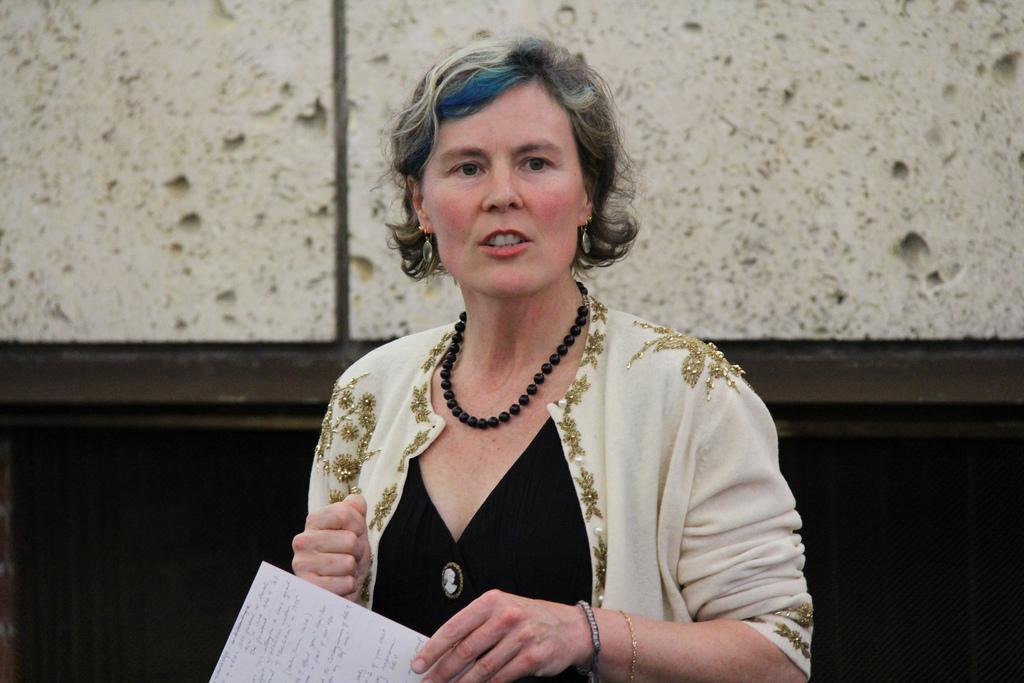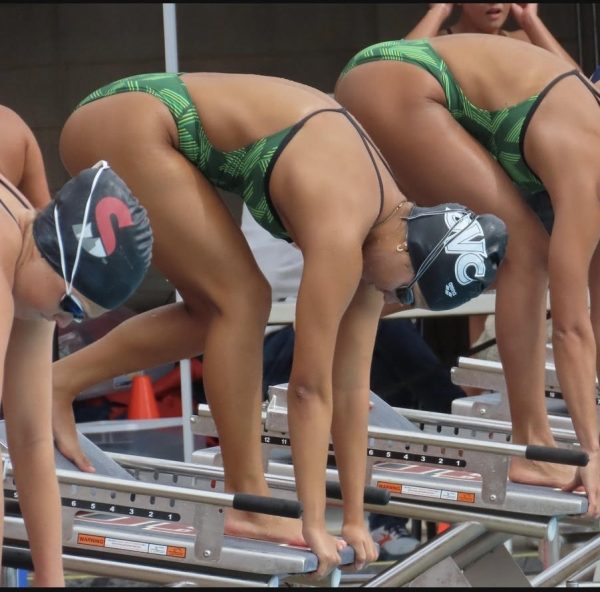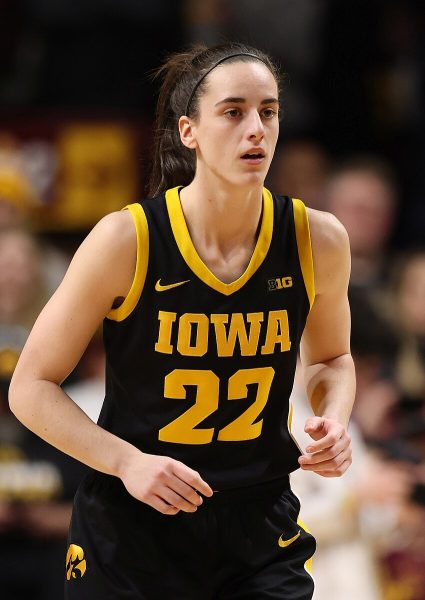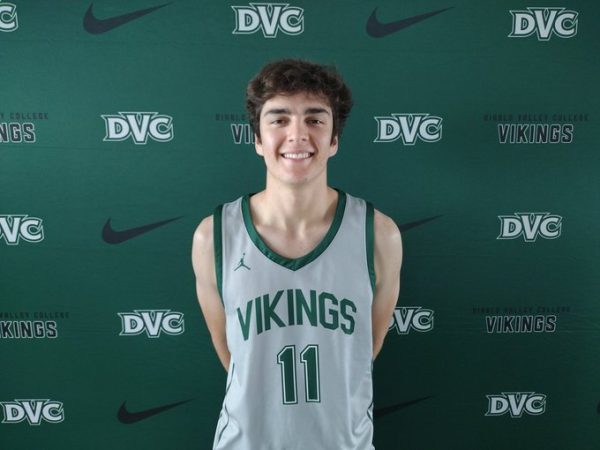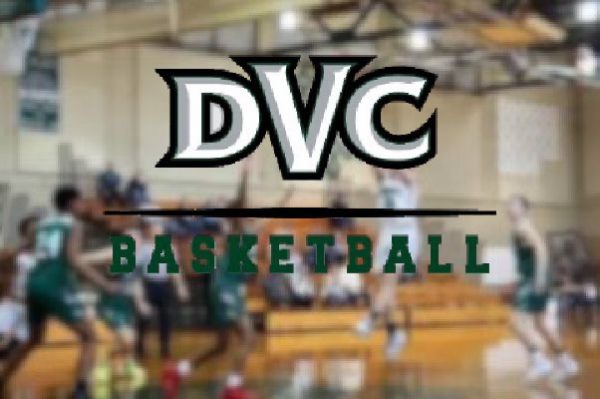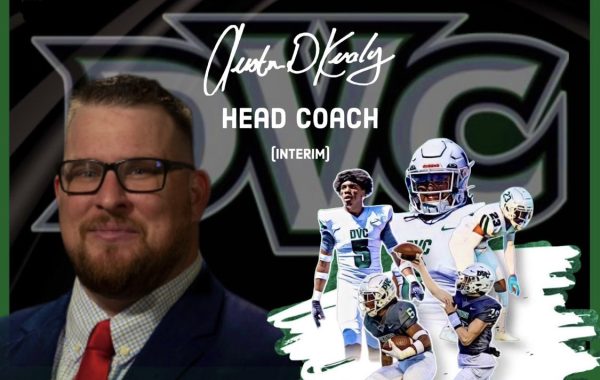Coaches honor Title IX anniversary
Melissa Jacobson, DVC History faculty, moderated a panel discussion on The 40th Anniversary of Title IX. The act mandated equal opportunity for women and men in all fields of federally-funded public education. (Alex Brendel)
March 26, 2012
Several firsthand perspectives were displayed at a Title IX panel last Thursday, March 15th. DVC Coaches Cailin Mullins, Theresa Flores-Lowry and Jackie Panciano-Babb made up Title IX up the panel discussing athletic gender issues they’ve noticed and experienced throughout life, improvements that have been made and problems that must still be resolved.
Flores-Lowry has been coaching and teaching for over 25 years, spending 10 years the University of the Pacific as a softball coach and 15 years at DVC as a softball coach and teacher of various physical education classes. She was also the first female to receive an athletic scholarship to the University of the Pacific.
As the elder of the three panel members, Flores-Lowry was able to recount a longer history of gender inequality in her sports career. She began noticing a divide in junior high regarding the equipment for baseball and softball. “They had uniforms, we did not. They had twill, button down uniforms while we were playing in shirts and jeans.”
Mullins, the women’s soccer coach at DVC, and Panciano-Babb, DVC women’s volleyball coach, shared very similar views which slightly varied from Flores-Lowry’s.
Mullins and Panciano-Babb began their respective sports careers in the 1980s. Each
stated they didn’t truly notice equity problems until they reached their higher education. “As long as I had access to play, that’s all I knew. But I didn’t become aware of it [the inequailities] until college,” said Panciano-Babb.
Mullins recalled a detailed memory from her time at Maryland, where she played lacrosse and soccer. She talked about the poor condition of the female athletes’ dorms and the perks the football team was given: they had a separate dining area where they ate for free, along with occasionally having pizza delivered to their dorms, whereas her teams had to eat in the general area and pay for all their food.
As coaches, all three members expressed the hurdles women face to become coaches, as well as the speed bumps that exist for those who do become coaches. “I think there is sometimes some subconscious discrimination in sports administration,” said Flores-Lowry. One point in
particular was brought up by each member: women have trouble being coaches due to the demands of family life. Flores-Lowry stated she knew numerous female coaches who had to give up their job because their tasks as a mother and wife simply garnered too much of their time.
However, not all is disappointing or disheartening. Since the inception of Title IX, numerous women’s sports have been added, such as basketball, soccer and water polo. A new women’s locker room was recently built at DVC, which all three coaches said is the most important improvement DVC has made for women’s sports to date. Mullins said Title IX is a key recruiting tool for her. The soccer field was renovated not too long ago as well, with a new surface, irrigation and drainage systems and a new scoreboard put in place, all made possible by Title IX.
Problems still remain though. Women don’t hold nearly as many head positions as men in the sports world, or the world in general, and women aren’t typically given the recognition men receive. ESPN regularly covers all the major sports involving men, while the WNBA and other women’s pro sports are left with no headlines.
Mullins, Flores-Lowry and Panciano-Babb all agreed women seek respect equal to that of their male counterparts. “We want to be treated the same as the male athletes,” said Panciano-Babb.
Girls and young women need tangible examples of female progress. The increasing popularity of the NCAA Womens College Basketball tournament highlights that progress. Mullins stated succinctly, “Having role models is important for girls to see opportunities they can have.” Flores-Lowry encompassed the key point of the panel’s discussion by saying, “We still have a ways to go. Not just at DVC but all across the nation.”





































































